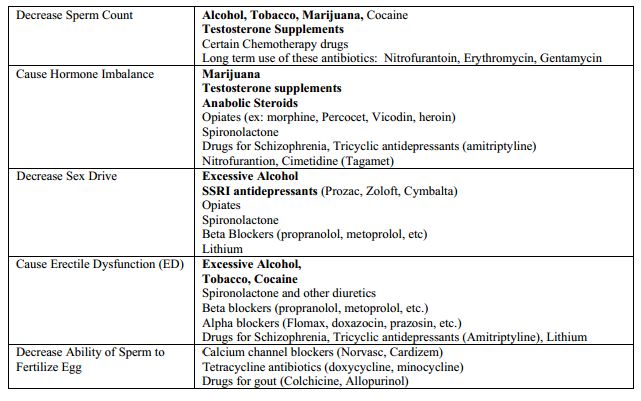Male Infertility is defined as the inability to conceive after 12 months of regular unprotected intercourse.
It affects about 15% of American couples. Male factor infertility accounts for approximately 40% of all cases of infertility. Although there are more possible different causes of female infertility, such as occlusion of the tubes, endometriosis, and anovulation, the male factor is the single most common cause of infertility in an affected couple. This is why a semen analysis is such an important part of our initial work-up. Your semen sample should be collected in our office.
The following table describes a normal semen sample:
Male infertility Causes
Genetic disorders, hormonal imbalances, anatomic abnormalities, infection, exposure to radiation, and exposure to dangerous chemicals, fertilizers, or pesticides are all known to damage either the ability to produce sperm, or the ability of sperm to fertilize an egg. The table below contains some commonly used medications that can decrease fertility. Cigarettes, marijuana, cocaine, and opiates, are known to damage the genetic material in sperm, decrease total sperm count, and contribute to erectile dysfunction.
Sperm production ideally occurs in an environment cooler than body temperature, which is why the testicles are located outside the body. When the testicles are kept too warm, this may reduce sperm production. In as many as 50% of cases of male infertility, however, the cause is unknown. Spermatogenesis, the process of sperm production, takes 80-90 days. For this reason, many causes of damage to sperm can be corrected, and semen should be re-evaluated three months after starting any treatment or lifestyle change.










